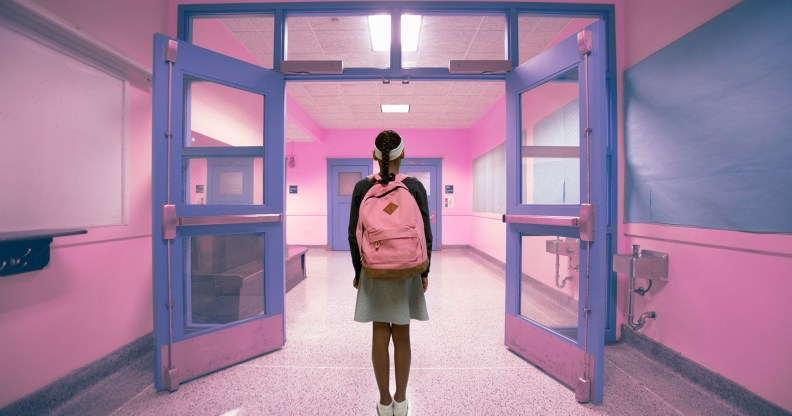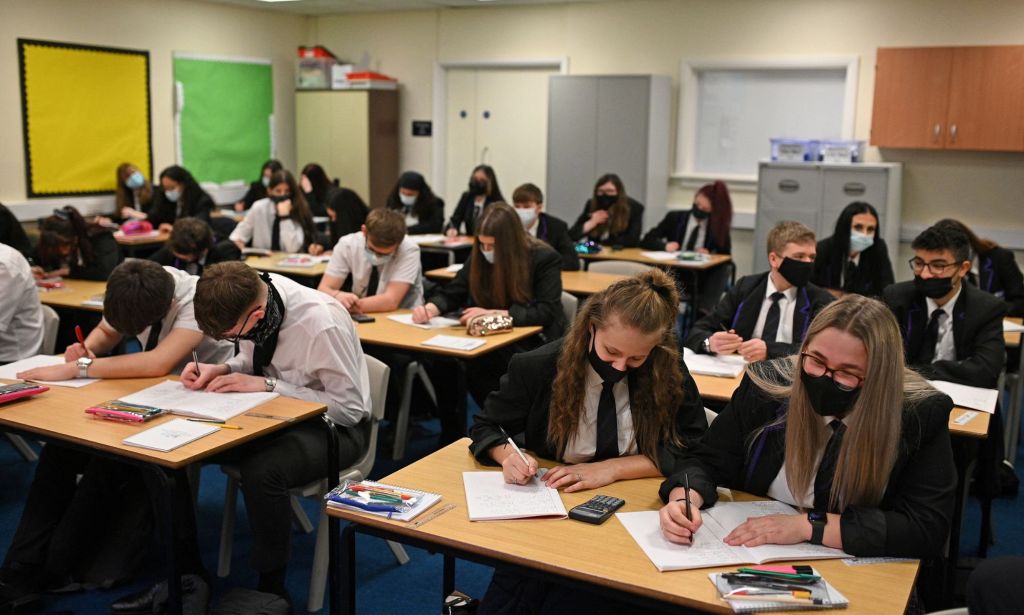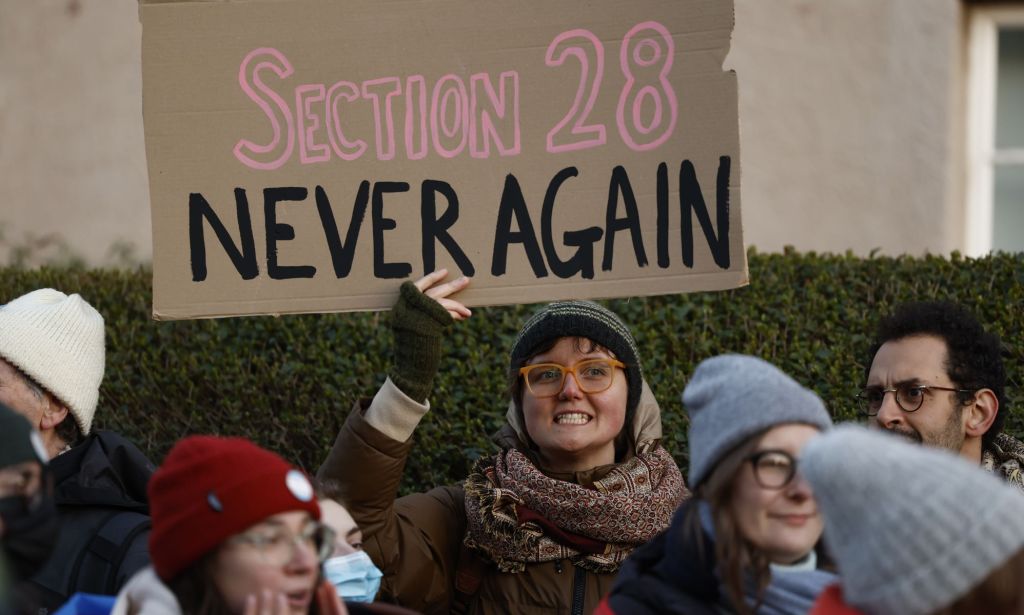Coming out trans at school: Student stories show why Tory plans to out trans kids are so, so wrong

Orange County Public Schools has released harsh guidance on student pronouns and restroom rules. (Getty)
As the government prepares to release restrictive new guidance for schools on trans students, three young people share their experiences of exploring their gender while in education.
In March, prime minister Rishi Sunak promised schools would receive new guidance after a report by the right-wing lobby group Policy Exchange, cynically titled “Asleep at the Wheel”, which claimed schools are compromising “fundamental safeguarding principles” by not outing trans kids to their parents.
Leaks have suggested the government guidance, which will cover state and independent schools, would bar trans children from using toilets or changing facilities which align with their authentic self, prevent trans girls from playing certain sports with other girls, and discourage schools from allowing students to change their names and pronouns.
The Policy Exchange report that appears to have inspired this opened with a foreword by gender-critical MP Rosie Duffield and based its findings on freedom of information requests sent to schools. However, there was no clear input from young trans people or their parents.
So PinkNews asked trans and non-binary ambassadors for Mermaids – who are either in education or have just left school – about how they’ve been supported in the UK education system, and how it could be better for those in the future.
When Chase Evans, 16, first came out to his friends, they were “really supportive” – having people who would correct others “when [he] felt too awkward to” made him feel more comfortable in sharing his truth.
“Some of my teachers also went above and beyond when trying to make me feel supported when I first came out, and I was really appreciative that nobody made it a big deal,” says Chase.

However, beyond their name change, Chase has had to ask his school “for every accommodation that has been made over the past two years” – nothing was offered to him unprompted, he says.
“I don’t think I realised this until I became ill, and my school was really supportive of that and offered me things I didn’t even need to make my day easier and more comfortable,” they add.
“I think it really highlights the fact that not all needs are treated the same in school.
“I don’t feel like asking to be respected in the place where I spend most of my day should be controversial or considered as me asking too much.”
They add: “Personally, I think that I started enjoying school more and did better when I came out, as I wasn’t constantly reminded of things like my deadname.
“I think that not supporting trans students makes it really difficult for them to do as well in school as they could be doing, as they don’t feel valued or respected in that environment. They might not try as hard as they don’t see the point in it. I feel that if schools want their students to do well, they should support trans people.”

According to a report in The Times, the new government guidance will warn schools that allowing children to use new names and pronouns could cause psychological harm, despite studies showing that using the correct pronouns for trans and non-binary youth reduces the risk of suicide.
It will also reportedly introduce rules for when schools “must inform parents about their children questioning their gender”.
For Jamie Jewkes, one of the defining moments of his school experience was when his teachers “listened to [him] with regard to [his] boundaries” about his name.
“I wanted to be out at school, but wasn’t ready to be out at home yet, so the teachers let me have control and choose what situations I could use my name for,” they explain.
“It allowed me to go for a prefect role, without fear of being unwillingly outed. It allowed me to relax at school.
“It made me feel so much more at home in school, and helped my academic focus and mental health so much.”
Being able to explore his identity at school helped Jamie, now 20, figure out who they are. But just a few short years on, Jamie has seen how things have “changed so much”, even without the forthcoming restrictions.
He describes seeing online posts from trans kids “every day about the fear they have” in “toxic” spaces.
“The omnipresence of media transphobia has such a big impact on our community’s mental health,” they add.
“It’s detrimental, especially to trans youth, who may be coming out into such an environment, and may not have had positive trans experiences yet.”

Caleb Howard is also 20 years old. In January, he visited his old sixth form to talk to some of the staff about his experiences.
He found they were “all very open and welcoming and wanted to know how they could make things better for students”. It mirrored a meeting he had before he’d even started the school, which he joined for sixth form, to discuss adjustments that could be made for him.
Caleb says it’s important for trans students to be supported because schools are there to “promote education and enable them to learn”.
“School should be a safe place for all, and students shouldn’t have to worry about how their identity should affect the level of education and teaching that they receive.
“It may be one of the few places they can be themselves if they don’t have a supportive family.”
Julie McCulloch, director of policy at the Association of School and College Leaders, said any guidance must be underpinned by “fairness, respect and safety”.
“It is crucial that there is full consultation with school and college leaders and teachers in advance of publication to ensure the guidance is deliverable,” McCulloch told PinkNews.
“A compassionate and practical set of guidelines to help schools navigate this sensitive territory, where every pupil is treated with dignity, is what is required.”

